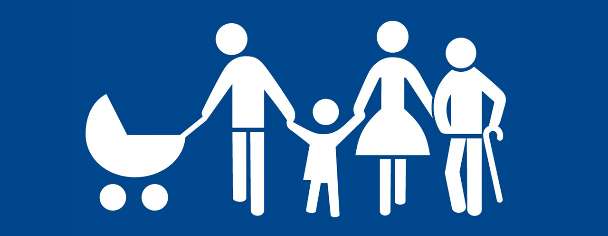Big Win for Traditional Family at UN Human Rights Council
 C-Fam.org 9 July 2015
C-Fam.org 9 July 2015
A monumental development for the pro-family movement came last week in Geneva when the Human Rights Council approved a resolution calling for countries to take concrete steps to protect the family, described in the Universal Declaration of Human Rights as the “natural and fundamental group unit of society.”
This is the second such resolution at the Human Rights Council (HRC) in two years, following two decades in which the family has been treated as highly controversial at the UN. In 2014, the HRC passed a resolution on the protection of the family by a vote of 26 in favor, 14 against, 6 abstentions, and one member absent. This year’s resolution enjoyed an increased majority: 29 in favor, 14 against, and 4 abstentions.
The resolution urges countries to adopt family-friendly laws and policies, while recognizing that the family unit faces “increasing vulnerabilities,” and calls upon international organizations to give “due consideration” to the family in the establishment of the post-2015 global development agenda.
The resolution notes that the family is “the natural environment for the growth and well-being of all its members and particularly children,” and that while the State is responsible for protecting the human rights of all, “the family has the primary responsibility for the nurturing and protection of children.”
Both recent resolutions received strong opposition from states and organizations with a pro-“sexual rights” position on the basis that they might be used to “advance highly contentious family values and family-oriented policies,” according to a statement by the group Sexual Rights Initiative (SRI), which exists to promote the extremely contentious notion of “sexual rights” within international institutions.
The most contentious aspect of the resolution involved the definition of the family, which is not explicitly outlined. The 2014 resolution was described by the European Parliament’s LGBT intergroup as “non-inclusive,” as “the reference to a singular ‘family’ could be used as precedent to oppose rights for same-sex couples, single parents, and other forms of families.” During last week’s debate, South Africa proposed a narrowly rejected amendment calling for a text acknowledging that in different contexts, “various forms of the family exist.”
Egypt introduced the resolution, and said it imposed no specific definition and left the matter of defining the family to the discretion of member states. The text acknowledges the diversity of households by noting “single-headed households, child-headed households and intergenerational households are particularly vulnerable to poverty and social exclusion.” The resolution also pays particular attention to families with disabled members, calling upon states to ensure they receive adequate support.
https://c-fam.org/friday_fax/big-win-for-traditional-family-at-un-human-rights-council/?inf_contact_key=40da38911a42e66069b99a274068c7fa35778f2e4336798aa629c8fda0d0255a
IMPORTANT UPDATE
The resolution was a rejection of Yogyakarta Principles that have been embraced by many western nations including New Zealand.
The Yogyakarta Principles proponents call themselves “The International Commission of Jurists and the International Service for Human Rights” and define themselves as “experts”. They are a group of 30 sexual rights activists who came together in Yogyakarta, Indonesia, in November 2006 to develop the Yogyakarta Principles, which, in essence, is a wish list of sexual rights relating to orientation and gender identity. The drafters claim these Principles “affirm binding international legal standards with which all States must comply.” Yet the drafters fail to identify the supposed “binding legal standards” on which the Principles are based. Their agenda constitutes one of the greatest current threats to the institution of the family. To date, “sexual orientation” and “gender identity” are not mentioned in any UN treaty or other consensus document, yet there is a concerted effort to push these ‘principles’ on all states.
Parents, school principals and Boards of Trustees should be wary of the contentious gender identity ideology that is being imposed on children.
This radical document seeks to redefine gender and promote governmental and societal recognition, protection and promotion of any kind of sexual behaviour—no matter how harmful. Even more concerning, those who promote the Yogyakarta Principles are seeking to implement them with the force of law. International human rights emanate from international treaties adopted by United Nations Member States. To date, “sexual orientation” and “gender identity” are not mentioned in any UN treaty or other consensus document. In fact, every time sexual orientation and gender identity provisions have been proposed during negotiations for inclusion in UN consensus documents, they have been flatly rejected by the majority of UN Member States.
It is disturbing that New Zealand supports these so called ‘principles’ and Right to Life is determined to expose the harm that such an agenda constitutes to the well being and functioning of our society.
Source: Right to Life NZ






